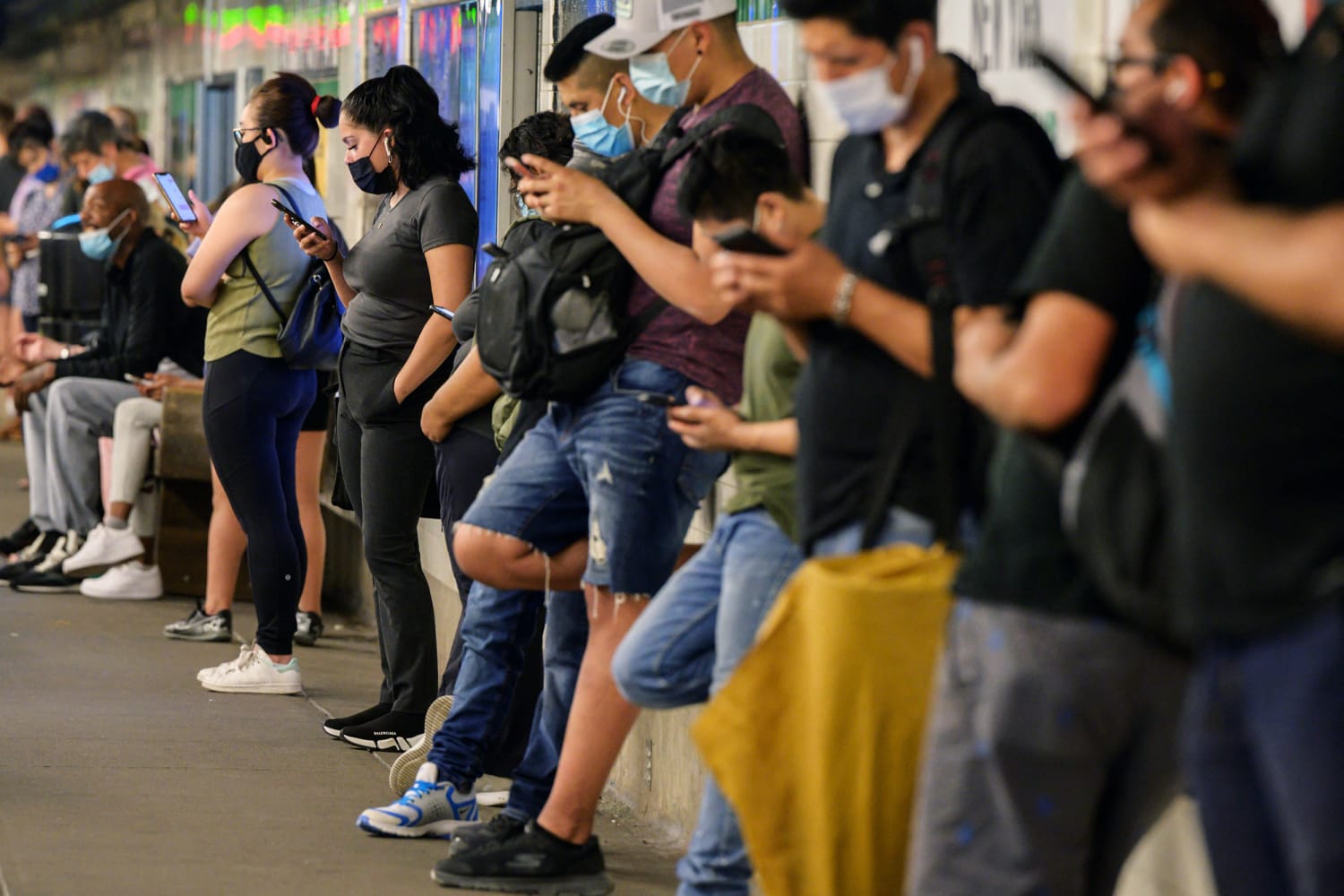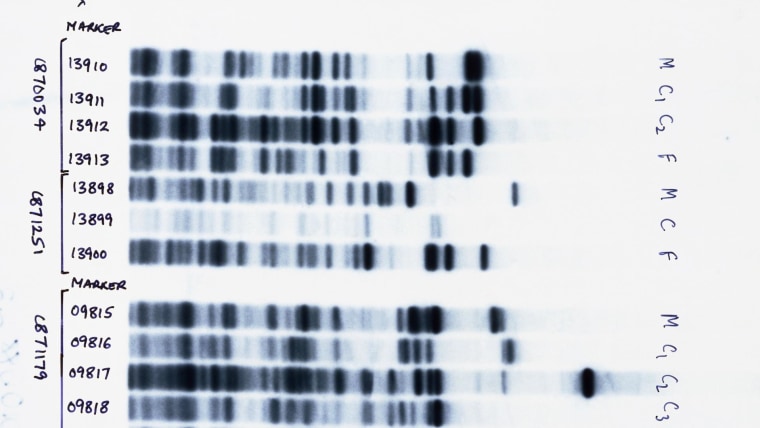With July Fourth here, it’s a good time to consider what the pandemic taught us about how Americans define freedom.
Though Covid-19 restrictions have eased — for now, at least — and the masks have come off, we should not forget all those red-blooded, liberty-loving Americans who were ripping their masks off and fighting with store employees in Costco, Target and Walmart last year and saw themselves as patriots, battling a repressive state authority like China. Fox News commentators this year have regularly turned the notion of vaccine passports into a “Democrats are totalitarians” political talking point.
Meanwhile, a frighteningly large minority of Americans are exercising their right to refuse Covid-19 vaccinations because they still think the shots contain tracking microchips.
But Americans have already submitted themselves abjectly to a far more persistent intrusion: cryptic mass commercial data harvesting. Billions of bits of our personal data stream minute by minute — click by click — into a great underground sea that is tapped by private enterprise without anyone’s explicit consent.
Few Americans — and certainly not the anti-maskers and anti-vaccine passport types — would accept such intrusion by the government. But we submit without a fuss to much greater commercial privacy intrusions
Google, Facebook and near every app on your phone has collected, studied and sold hundreds of thousands of collateral data points on every man, woman and even child in the nation.
Facebook’s well-known mass-behavioral experiments and the advanced “reality mining” operations of the Massachusetts Institute of Technology’s media lab are just two of the better known of thousands of projects underway enabled by a system of data collection to which we have rarely asked to consent (at least until Apple’s late April iPhone operating system update).
Shoshana Zuboff, in her book “The Age of Surveillance Capitalism,” calls the recipients and manipulators of this collateral behavioral data collectively “Big Other.”
And, in theory, Big Other’s all-seeing eye could have made tracking and controlling a public health crisis easier than ever in human history: The proliferation of health data apps on American smartphones, for instance, had reached more than 100,000 in 2016.
But the data collected by those apps isn’t streaming into doctor’s offices, or flowing into a local or national public health database; it is sold to help merchants sell app users stuff, not to help public health officials. And other technologies that track out data and could’ve also assisted public health officials — wearable sensor technologies, smart home technology and other health-monitoring artificial intelligence in development — are all similarly designed solely in the service of commercial interests.
Few Americans — and certainly not the anti-maskers and anti-vaccine passport types — would accept such intrusion by the government. But we submit without a fuss to much greater commercial privacy intrusions — and we know from Edward Snowden’s revelations that the national security state can dip into the data stream any time it wants.
Google, Facebook and near every app on your phone has collected, studied and sold hundreds of thousands of collateral data points on every man, woman and even child in the nation.
Republicans — who have made themselves the party of unmasking and “liberty” — have, however, consistently supported surveillance capitalism. As recently as 2017, they voted against giving individuals the right to even affirmatively consent to having their data hoovered up and sold by cable and phone companies for ads and profiling.
“It is eloquent testimony to the health care system’s failure to serve the needs of second-modernity individuals that we now access health data and advice from our phones while these pocket computers aggressively access us,” Zuboff wrote.
The pandemic crisis is a good time to ask: Could some of that private surveillance capacity have been harnessed to streamline and connect public health efforts — to predict and ease the health crisis?
And, perhaps more to the point, if the industry could create a system for tracking the sick, the exposed or the unvaccinated, would we want it?
Unfortunately, policymakers, Big Tech, electronic privacy advocates and especially the public have barely begun to think about how to apply technology in a way that doesn’t turn Western societies into China-like authoritarian dystopias. We’ve not been even been asked to consider the possibility until now.
Before the pandemic, there was actually little interest in harnessing tech to public health. One notable exception was when Big Tech stepped in to save the disastrous 2013 Obamacare rollout on the healthcare.gov website. “Digital health is more new than improved and sorely in need of more significant results rather than facile claims,” Vanessa Mason, the founder of a public health tech venture fund, wrote in 2017.
The pandemic has simply pushed Americans ever faster and further into a no-touch, machine-dominated and data- sucking future.
Public health is neither sexy nor lucrative, and many of Silicon Valley’s best-known products were created almost solely by men with two chief aims: to get rich and to get laid. (Recall that early incarnations of Siri could find prostitutes and Viagra but not abortion providers.)
Many tech titans came to power by applying their algorithmic skills toward creating platforms aimed at ever more finely targeted ads … and helping math nerds meet girls. Reviewing the movie “The Social Network,” Zadie Smith wrote that everything about Facebook is “reduced to the size of its founder. Poking, because that’s what shy boys do to girls they are scared to talk to.”
There is no sign the pandemic prompted Big Tech to change its priorities. Silicon Valley was involved in the pandemic response in three general areas: contact tracing, epidemic modeling and public health communication. The industry generally failed in the first and last of those, but tech titans saw the crisis as another opportunity to expand their operations without altering their underlying philosophy regarding commercialized data collection.
Europeans had been much more antagonistic than Americans toward tech companies’ consent-free data-vacuuming, but the pandemic crisis also extended Big Tech’s reach in the European Union. Only a few European countries have publicly contested Apple and Google’s involvement in digital contact tracing, according to researchers at the University of Oslo who studied Big Tech and the pandemic response. Public health agencies looking to use Apple and Google for contact tracing “have little if any choice but to accept the terms and conditions the companies impose” with respect to data ownership.
The French notably rejected the U.S. tech companies’ involvement in their Covid contact tracing: Parliamentarians in Paris last year raised concerns about “making personal health data publicly available forever and allowing Big Tech and Wall Street to profit from them.” The French people were instead asked to trust the state, which, through the national health care system, already maintains their health data.
Billions of bits of our personal data stream minute by minute — click by click — into a great underground sea that is tapped by private enterprise without anyone’s explicit consent.
Social media platforms also racked up a less-than-stellar record in pandemic communications. Facebook had an obvious interest in promoting itself as a safe source of information to counter its reputation as one of the great global purveyors of mis- and disinformation.
And so, early in the crisis, Facebook chief Mark Zuckerberg gave the World Health Organization a WhatsApp “chatbot” to assist the world body in sharing information with what was hoped would be at least 2 billion people. Two months after launch, it had only 12.6 million users, and the Oslo researchers “found no further information about its uptake since,” possibly because WhatsApp refused to allow the chatbot to send users unsolicited notifications and couldn’t meet “the challenge of ensuring up-to-date information in a fast-changing context” or find answers to problems associated with communicating across linguistic and cultural lines.
The Oslo researchers concluded that “technologies ushered in during the Covid crisis may be reconfiguring the power balance between the public and private interests in ways that will far outlive the pandemic.”
In the United States, few people are even asking questions about that power imbalance. The pandemic has simply pushed Americans ever faster and further into a no-touch, machine-dominated and data- sucking future, handing Silicon Valley titans what Naomi Klein calls a “Screen New Deal.”
A contactless parking app founder celebrated the new matrix thusly: “Humans are biohazards, machines are not.”
Adapted from Nina Burleigh’s “Virus: Vaccinations, the CDC, and the Hijacking of America’s Response to the Pandemic,” published in May by Seven Stories Press.
Source: | This article originally belongs to Nbcnews.com












